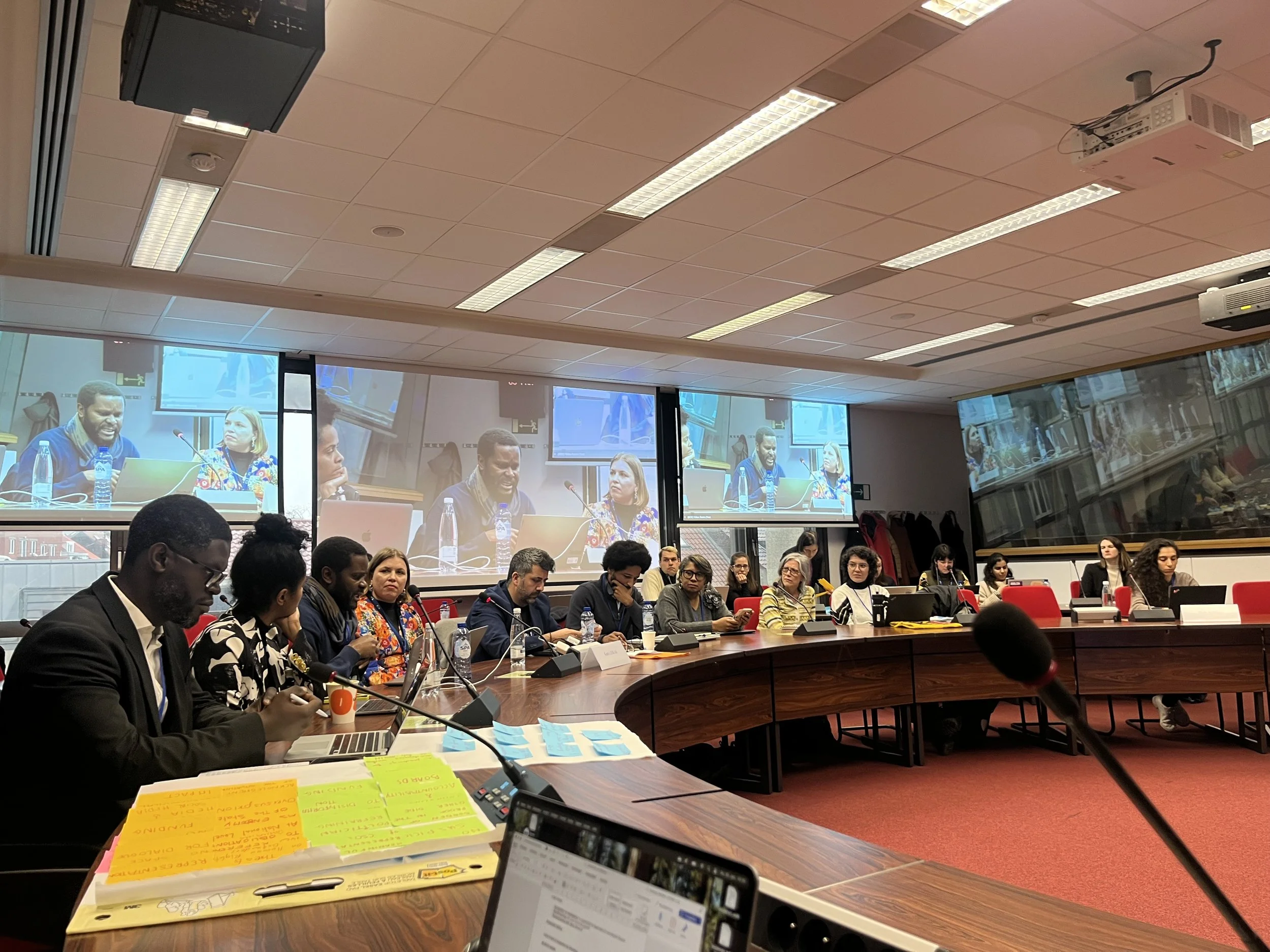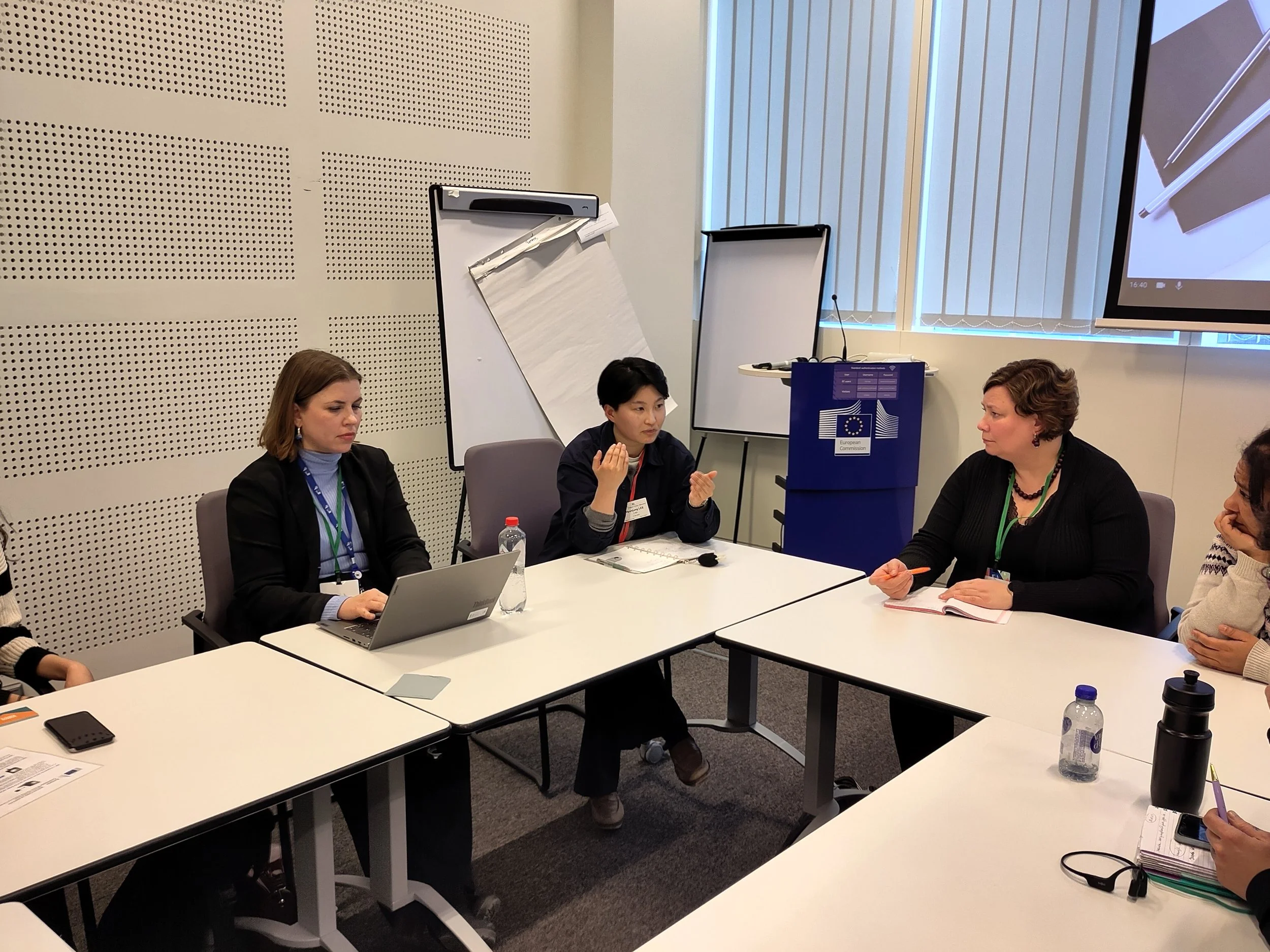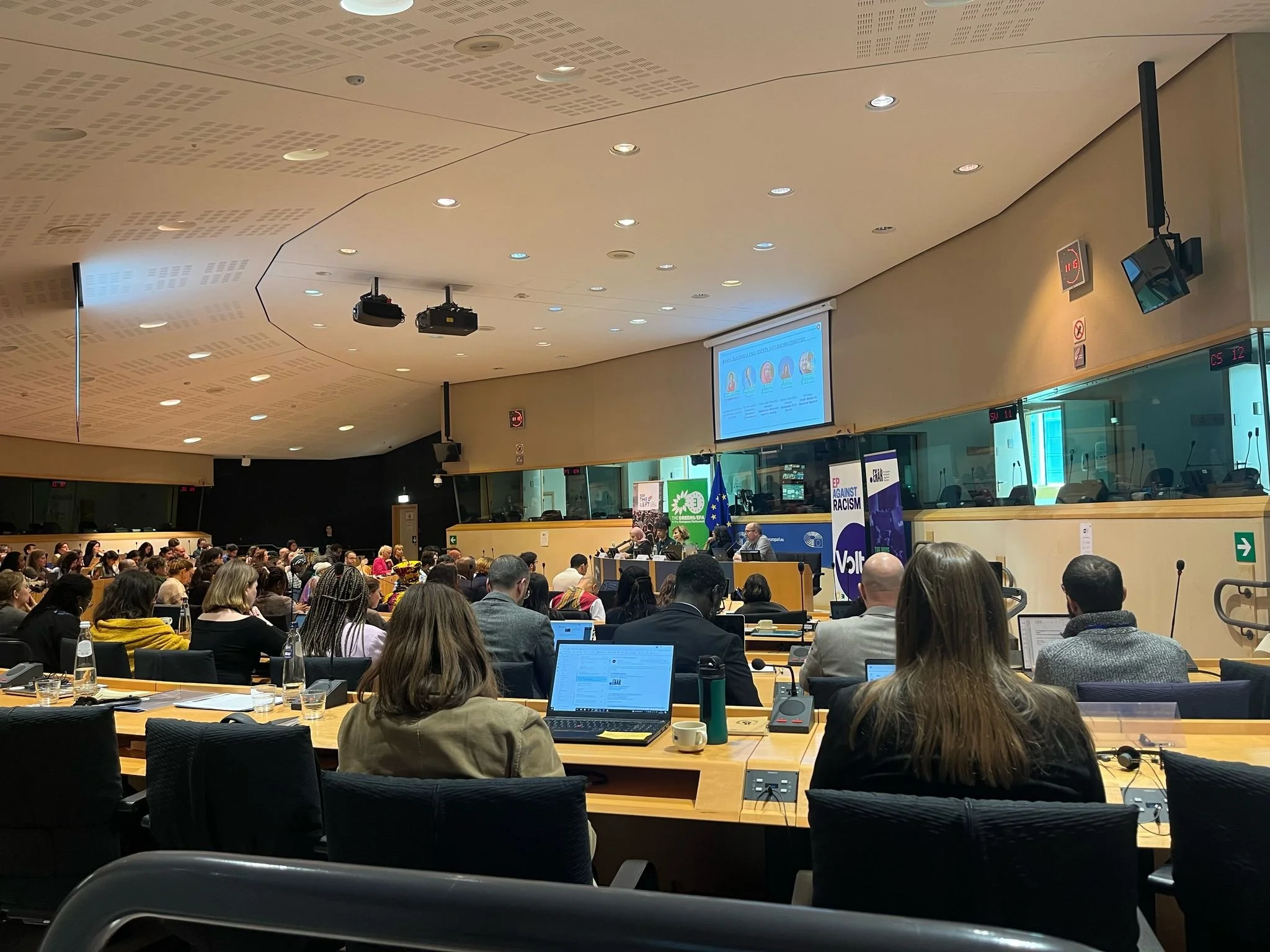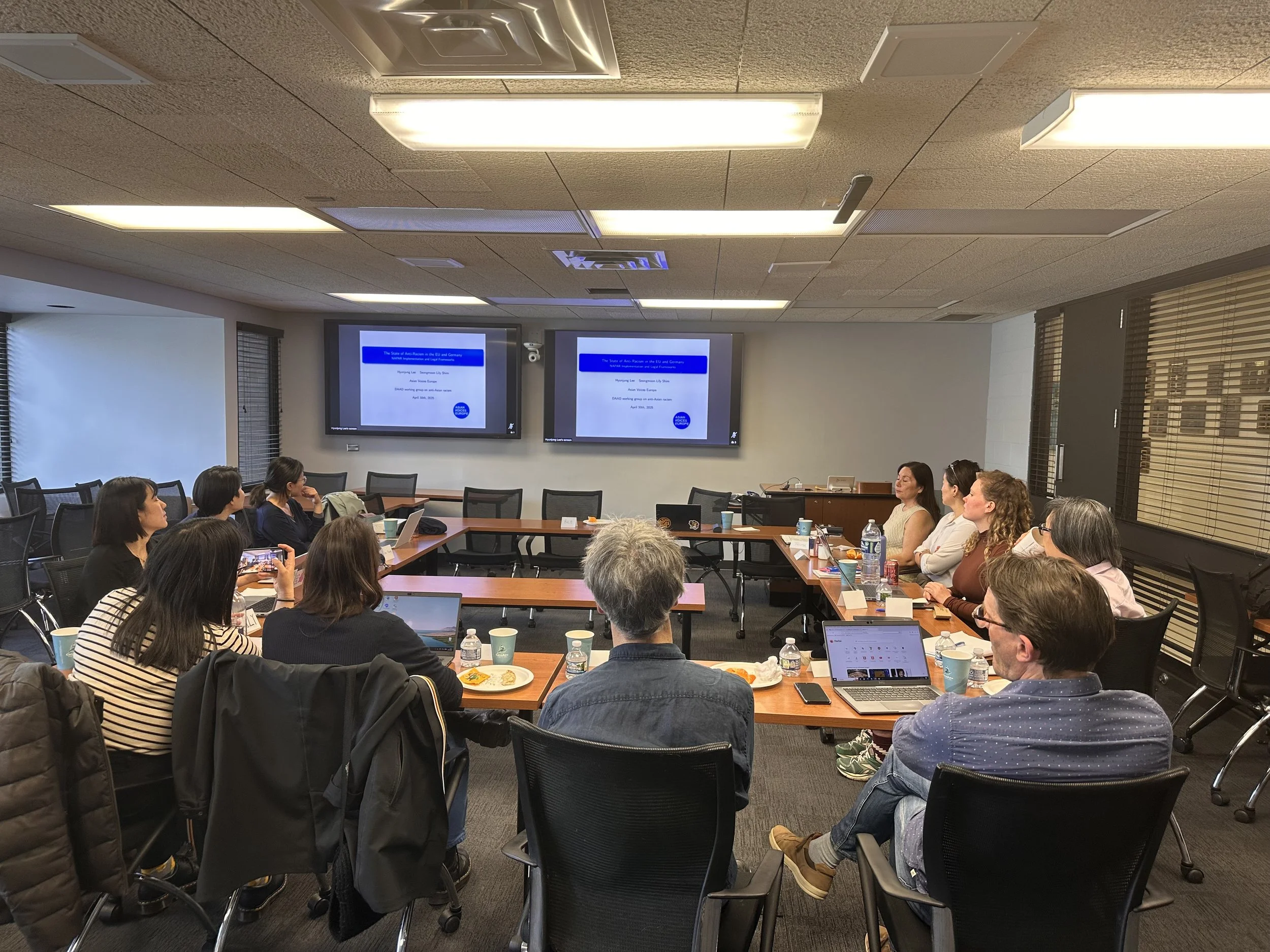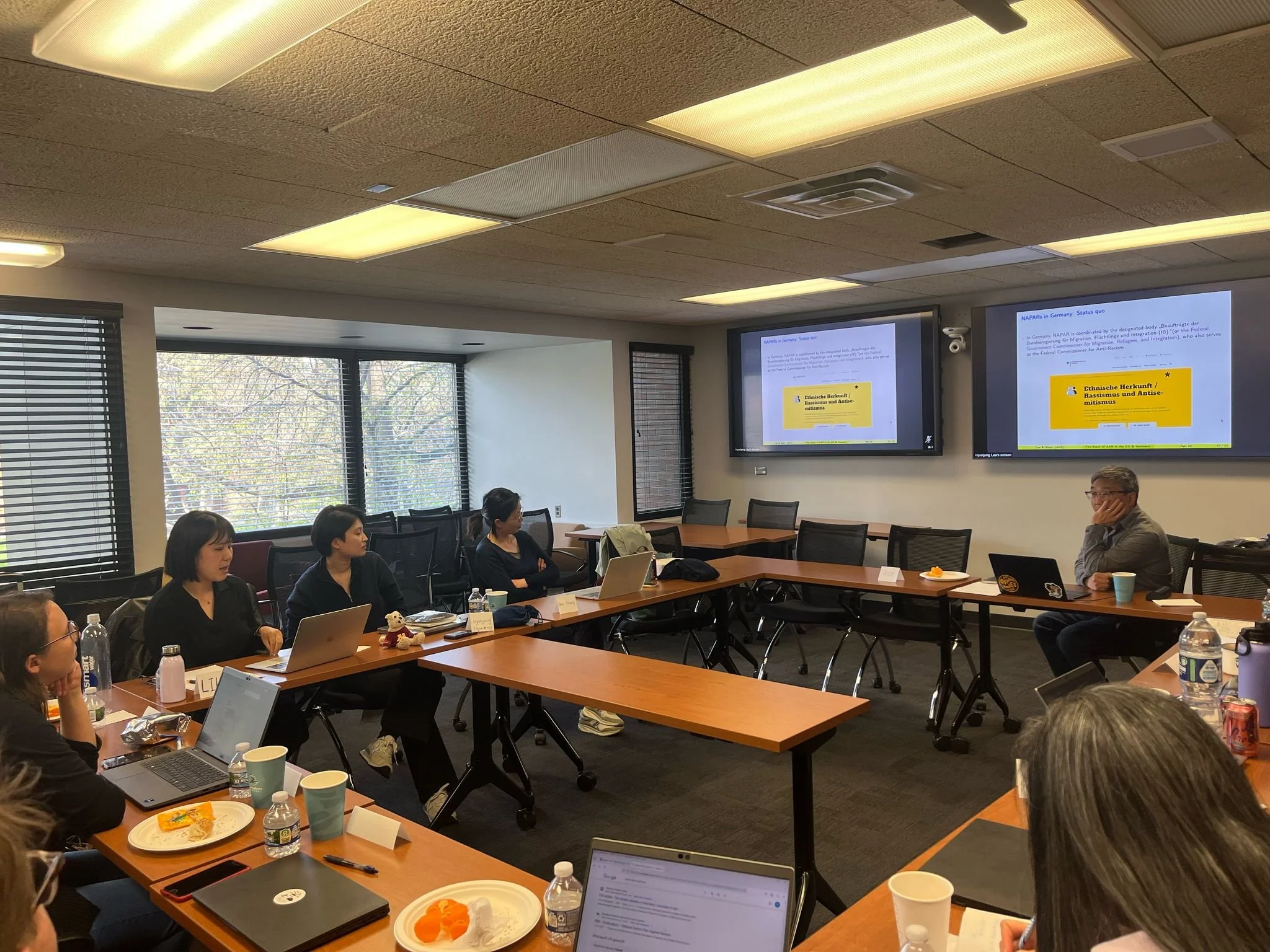AVE updates: 2025 Q1
In 2025, Asian Voices Europe (AVE) started the year by engaging in crucial policy & advocacy events and initiatives aimed at combating racism and promoting inclusivity across Europe.
January 29-30: 8th Permanent Anti-Racism Civil Society Forum
We kicked off the year in Brussels, joining the 8th meeting of the EU’s anti-racism forum with other civil society organizations. AVE called for better data collection practices, stronger protections for civic spaces, and more representation of Asian communities within EU institutions.
We set forth four key priority areas:
Ensuring equality in data collection: More inclusive racial and ethnic data is essential in driving meaningful change and monitoring progress on racial justice.
Protecting civic spaces: Many civil society groups face growing restrictions and threats. We stressed the need to safeguard their rights in working for justice and equality.
Diversifying in EU Institutions: EU institutions must lead by example through stronger internal diversity, ensuring inclusion is practiced internally, not just promoted externally.
Creating a dedicated anti-Asian racism unit within the EU: Despite the visible rise in anti-Asian hate, there is still no dedicated EU unit addressing this issue. We highlighted the urgent need for institutional recognition and targeted action.
With the current EU Anti-Racism Action Plan ending in 2025, we also stressed that the next phase (2026–2030) must center community-led and community-based perspectives at every stage of policy design and implementation.
March 17: CSO Subgroup on National Action Plans Against Racism (NAPAR)
In this important member-state dialogue, AVE joined other civil society organizations to directly engage with national representatives responsible for developing and implementing their NAPARs. This closed-door meeting offered a rare opportunity for grassroots voices to speak candidly about what’s working—and what’s not.
We highlighted several core concerns:
To name racism as a structural issue: Policies must address racism not just as individual acts, but as a systemic issue embedded in institutions.
To engage community leadership: National action plans must be shaped by those most affected, not just consulted after the fact. We called for deeper, ongoing involvement of community-led platforms.
To create effective counter-narratives: Tackling hate speech requires more than just regulation; we need to create powerful, human-centered narratives that shift public discourse.
To learn across borders from each other: We exchanged good practices and challenges. Malta and Finland shared strong examples of community-centered approaches that we believe could inspire other states.
Drawing from our ongoing research and advocacy, AVE pushed for national strategies that move beyond token gestures and reflect the lived realities of racialized communities—especially those of Asian descent, who are still often overlooked in Europe’s anti-racism frameworks.
March 18–19: Anti-Racism and Diversity Week – “Reimagine Racial Justice”
We participated in a powerful two-day event filled with panels and workshops on gender justice, workplace equity, and rising far-right threats.
AVE emphasized the need for solidarity across communities—and for EU actors to take intersectionality seriously in policymaking.
April 30: DAAD Research Group @Minnesota, U.S.
Our second transatlantic dialogue with the DAAD-funded research group brought together scholars, organizers, and community voices from Germany and the U.S. to explore diasporic memory, anti-Asian violence, and cross-border solidarity.
AVE contributed a detailed update on the current implementation of National Action Plans Against Racism (NAPAR)—both at the EU level and within Germany.
We shared key findings from recent German reports and consultations, emphasizing recurring structural gaps:
Inadequate equality data: Data on racial and ethnic minorities remains scarce, inconsistent, and lacks standardized methodology—making it difficult to track discrimination or assess progress.
Weak legal protections: The German AGG (Allgemeines Gleichbehandlungsgesetz, ‘General Equal Treatment Act’, enacted August 2006) continues to fall short in addressing the realities of racial discrimination and provides limited recourse for victims.
Lack of community-led knowledge sharing in policymaking: We emphasized the need for participatory research and policymaking rooted in affected communities’ lived experiences.
The session pointed out a shared need across both continents and across multiple stakeholders: to center racialized communities in both research and policy, and to build lasting coalitions across borders.
May 19: Targeted meeting on the consultation process on the upcoming EU anti-racism strategy
In this meeting , AVE emphasized the urgent need for a shared understanding of structural racism across Member States. We stressed that intersectionality must be central—not secondary—and called for inclusive, community-led data collection frameworks that reflect the complexity of intersectional identities.
We also advocated for systemic anti-racism education, stronger partnerships with grassroots actors, and the creation of a dedicated EU-level desk for anti-Asian racism. Most importantly, we urged the Commission to hold regular, thematic consultations that enable proactive—not reactive—civil society input.
To build on this, we will be submitting a detailed written policy brief to ensure these perspectives are included in the next phase of strategy design.

